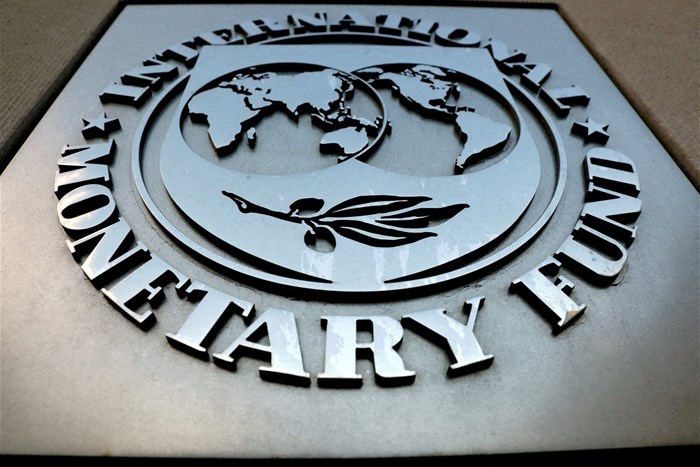A top-level meeting in Paris next month will lay out a $100bn plan to drive more money into climate and development finance in poorer countries by providing currency guarantees to investors, according to a document seen by Reuters.

File photo: The International Monetary Fund (IMF) logo in Washington, United States, 4 September 2018. Reuters/Yuri Gripas
The plan, which has not previously been reported, was sent to the world's governments ahead of the "Summit for a New Global Financing Pact" in Paris in June by the Bridgetown Initiative spearheaded by Barbados leader Mia Mottley.
The idea, in a consultation document dated April 2023, would rely on the firepower of the International Monetary Fund (IMF) and other multilateral development banks (MDBs), and forms part of growing efforts to reform the international financial system.
It would see the IMF and other MDBs "cut the excessive macro-risk premia on developing countries with $100bn per year of foreign exchange guarantees", for financing in more volatile domestic currencies rather than the dollar or euro.
The guarantees would be for "just green transition investments", which one source involved in the plans said could include "green" bonds focused on environmentally friendly projects as a well as others such as ocean-focused "blue" bonds and sustainability-linked bonds.
Their benefit is that the MDBs would step in and compensate international buyers of those bonds if the country involved devalued its currency and effectively cut the dollar-value of its bond payments.
By removing that risk for investors, it should significantly reduce the rates of interest the governments have to pay. For some it could even be the boost needed to regain access to global capital markets lost during the Covid pandemic.
A report released at the COP27 climate talks suggested developing countries would need $1tn a year in public and private money annually by 2030 to tackle global warming, yet to-date capital flows are just a fraction of what is needed.
A report by the World Bank and other big multilateral lenders said they gave $51bn in 2021 alongside $13bn from private finance.
The Paris summit, hosted by French President Emmanuel Macron on 22-23 June, will be attended by a number of world leaders and representatives from flagship global institutions such as the IMF and United Nations.
Outlines of the proposals have been sent to the key groups preparing the discussions over the last couple of weeks.
Call to arms
As well as the currency idea, the document also gives more detail on the main objectives of Version 2.0 of the Bridgetown Initiative, which has become a heavyweight voice over the last 18 months in global climate and sustainability discussions.
"This is a call to arms" the source said, referring to the document and its intention to galvanise more concrete action from the IMF and multilateral lenders.
After a slow start, the idea that fundamental change is needed to help more money flow to developing countries in the fight against climate change has picked up steam in the last year and was a key focus of global climate talks in November.
Since then, the World Bank has appointed a new President, former Mastercard CEO Ajay Banga, and released a reform plan that would boost lending by $5bn a year, although Mottley and others want the system to go much further.
The proposals put forward in the April document, which also include redistributing other IMF money, are likely to form a key part of the negotiating position of developing countries at the next round of annual climate talks in Dubai later this year.


























































